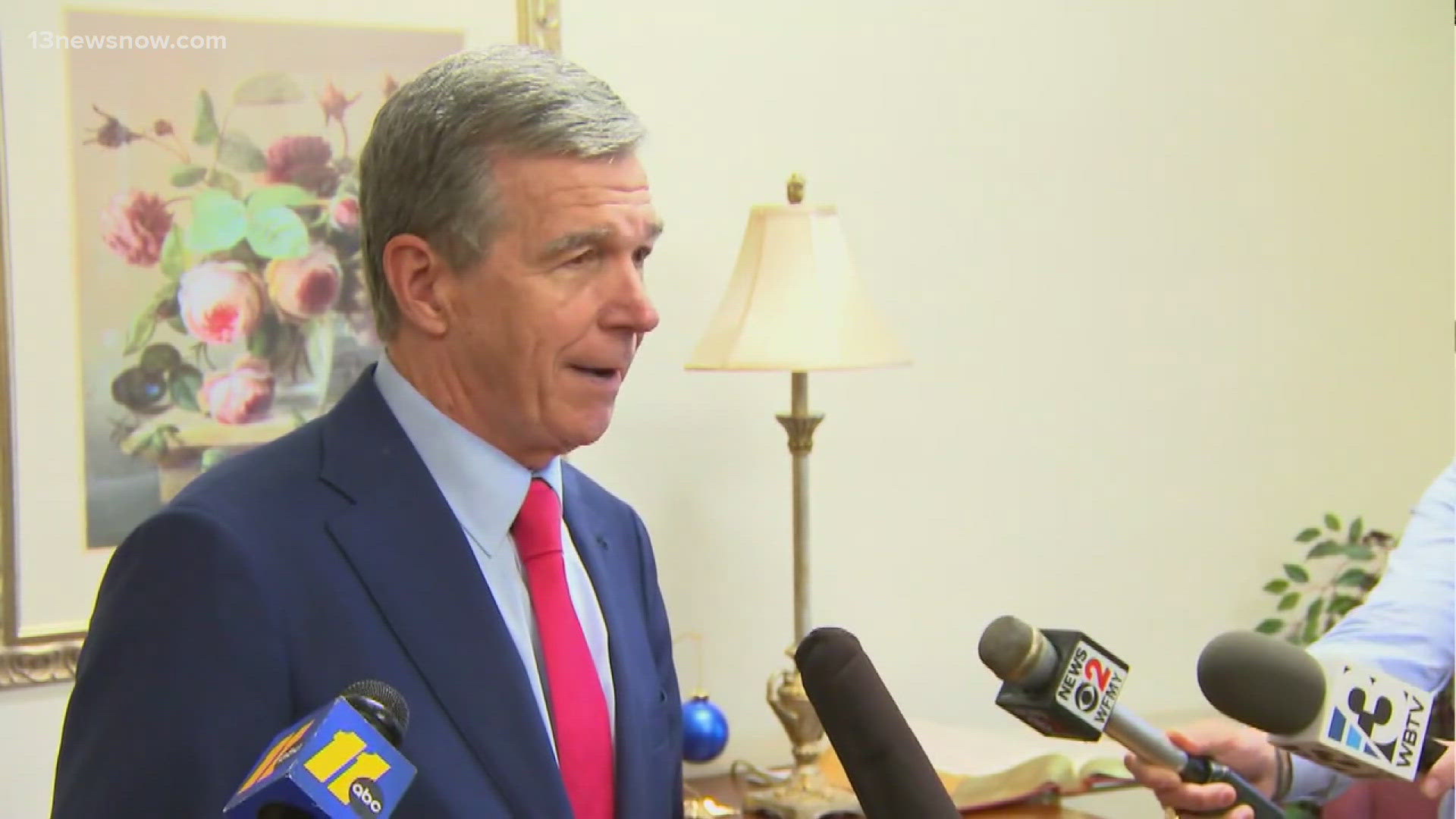RALEIGH, N.C. — North Carolina Gov. Roy Cooper has taken himself out of the running to be Vice President Kamala Harris' running mate, with less than 100 days until the November general election.
According to the Associated Press, part of the reasoning behind that decision is a worry Republican Lieutenant Governor Mark Robinson would try to assume control if Cooper left the state to campaign as part of the Democratic ticket, according to three people familiar with the matter.
Cooper confirmed in a statement Monday night that he would not be a candidate to be Harris' vice president, saying he was "honored" to be considered but "this just wasn't the right time for North Carolina and for me to potentially be on a national ticket."
The governor, 67, withdrew from contention well before Harris' vetting process began and never submitted the requisite material, according to two of the people. All three spoke on condition of anonymity to discuss the sensitive search process.
"If he was a Vice President nominee, he'd be gone regularly. Somebody has to be in charge and the governor's gone, somebody has to be making those calls that are unique only to the highest ranking executive officer in the case of North Carolina, that power goes to the lieutenant governor," said Jason Husser, Director of the Elon University Poll.
"Robinson wouldn't be able to do dramatic things because Cooper has had to leave. Robinson's had to sort of be in this kind of role before. But, it would give Robinson, while he's running for governor, a big platform that he could be doing things that would get lots of attention. Also, Cooper might find it quite disruptive in practice because the General Assembly is more powerful than the Governor of North Carolina. The general assembly is controlled by Republicans. It wouldn't have led to huge policy change. Other politicians have navigated this dynamic or this is not a novel thing, but it would have provided would have created some headaches," he added.
Cooper, the former chairman of the Democratic Governors Association, has been close to Harris since they were both state attorneys general. His potential selection was seen as a possible asset in shifting North Carolina — the Democrats' only significant opportunity to expand on their 2020 map — into Harris' hands.
Under the state constitution, North Carolina Lt. Gov. Mark Robinson, who is the GOP's nominee to replace the term-limited Cooper, becomes acting governor and can assume the Democrat's powers when he travels out of state.
Cooper, according to two of the people, has expressed concern about what Robinson might do if he were to leave the state extensively for campaign travel. Cooper's legal team, as well as some outside experts, do not believe Robinson would actually assume the powers that accompany being governor, such as issuing executive orders.
But the governor was concerned enough, one of the people familiar with the matter said, that Robinson would try to take action that could prompt litigation and spur distractions in North Carolina, one of the most critical political states nationwide both for the presidency and in its gubernatorial race.
Robinson is an ardent social conservative, who once called abortion "child sacrifice." In various church pulpits, Robinson has asserted men as the rightful leaders in church and society. He once mused that leaders of the original birth control movement in the U.S. were "witches, all of 'em." He has discussed LGBTQ people with words like "filth" and "maggots."
Will the presidential race impact the gubernatorial race?
According to Husser, North Carolina voters are not afraid to break rank and split their ticket in presidential elections, meaning it's unclear whether Robinson has an advantage over Democratic Attorney General Josh Stein, in the event former President Donald Trump wins the state's electoral votes.
"We saw that in 2020 with Donald Trump winning the state by a little over a point, Roy Cooper also winning the state by several points. What that means is, is there's 5% to 10% of North Carolinians who may be voting differently for President than they are for Governor. We're entering 2024 with a very competitive race for president, and very competitive to governor. It's anybody's ball game here. I wouldn't necessarily say they're true tossups or 50-50 tossups, but they're very winnable by both sides," Husser said.

